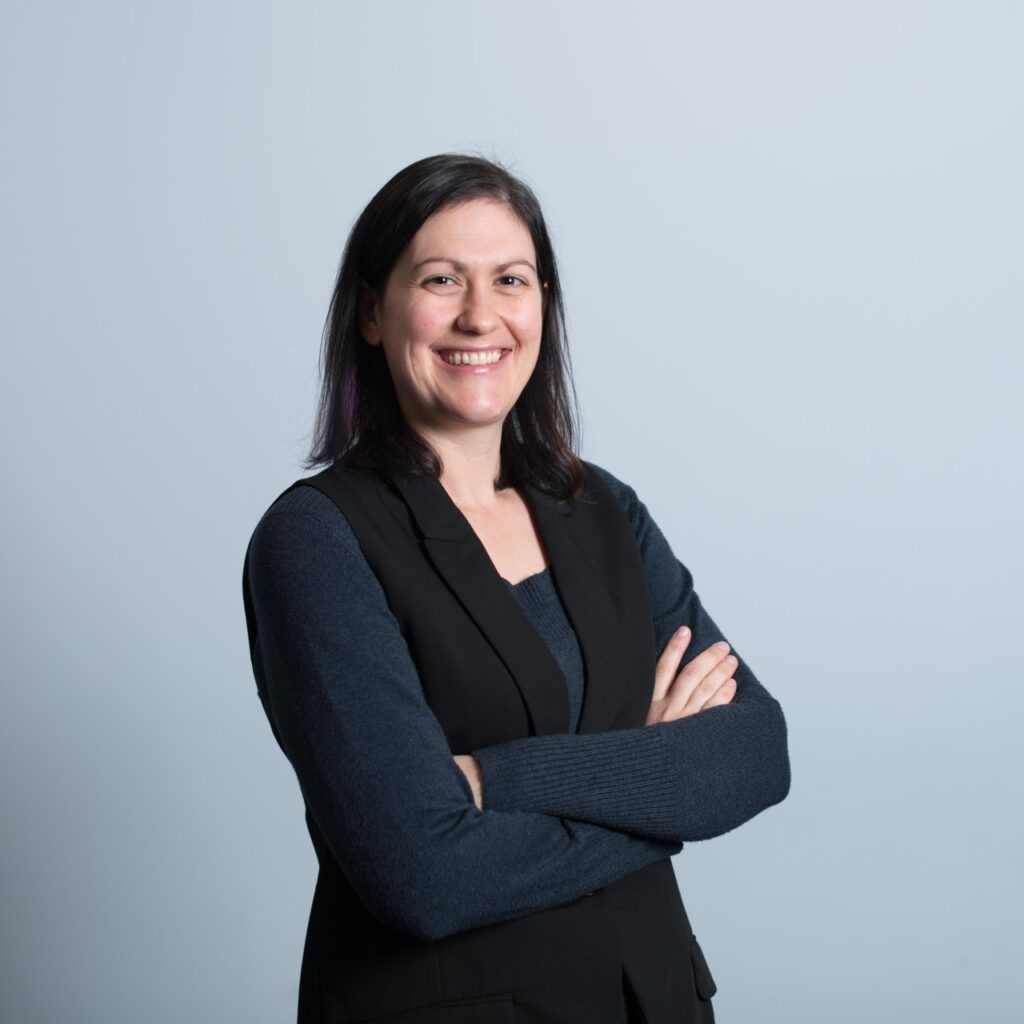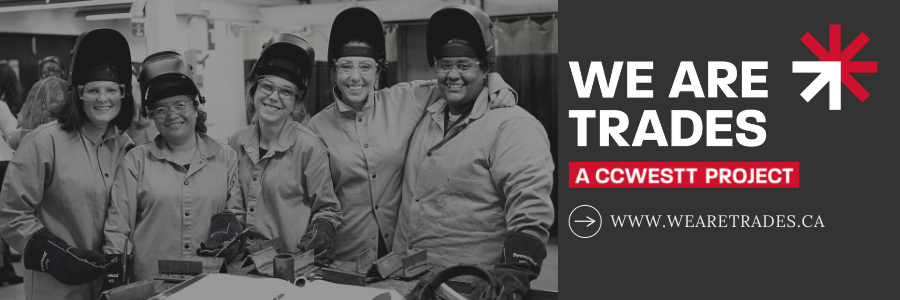Providing safe and inclusive workplaces for women in skilled trades is the goal of a project led by a U of G grad and launched this past year by a national coalition.
We Are Trades, a guide for employers to improve their workplace environment and culture for women, may also help address a projected labour shortage in male-dominated skilled trades, said Bonnie (Speed) Douglas, B.Eng. ’02.
She led the three-year initiative as a project manager with the Canadian Coalition of Women in Engineering, Science, Trades and Technology (CCWESTT) based in Renfrew, Ont.
Established in 1992, the non-profit coalition of individual members and groups advocates for diversity and inclusion in the science, engineering, trades and technology workforce.
“Women are grossly underrepresented in skilled trades,” said Douglas, speaking from her home office in London, Ont. Over the past two decades, the proportion of women in Canadian skilled trades has remained at around six per cent, even as women make up about half of the overall workforce.
She said the COVID-19 pandemic has increased unemployment for women, even as skilled trades need more workers including carpenters, plumbers, welders, machinists, millwrights, heavy equipment operators and electricians.
“There is a projected labour shortage in skilled trades in the next decade,” said Douglas. “One solution would be to recruit from underrepresented groups. Women make up the largest available talent pool.
“We hope to move the needle forward for women.”
We Are Trades guide aims to improve workplaces for women
Following two years of consultations with tradeswomen, employers and other groups, CCWESTT introduced its We Are Trades guide in fall 2021.
“We wanted to understand what employers need to make meaningful change,” said Douglas.
“Employers have a general awareness that this is a valuable thing to do. They known they should do something, but they don’t know where to start.”
Three areas in the guide discuss how to develop a strategy for hiring and retaining more women; how to institute equipment, practices and behaviours to improve inclusion; and how to measure progress. Besides sharing the resources with employers, CCWESTT members have discussed its findings at workshops and conferences.
Douglas points to employers that address common concerns, including provision of PPE and workwear; appropriate washrooms and changing facilities; action on harassment and bullying; and accommodating parental and maternal leave.

She has heard that the guide has encouraged plant managers, for example, to check inappropriate language. Elsewhere, companies have installed unisex washrooms or facilities to support breastfeeding in the workplace. “Some organizations do great work.”
She said CCWESTT is also promoting its guide with educational institutions. “We’re talking with schools and other organizations that help find jobs for women and directing employers to the We Are Trades guide. We’re asking them to look at it and see what changes they can make.”
Next, Douglas plans to widen the project to include other kinds of workplaces in science, engineering, trades and technology. “Trades have the greatest disparity, so we started there, but there are a lot of similarities with other areas.”
At U of G, she studied biological engineering and minored in food engineering.
During her almost 20-year career in food manufacturing, she honed skills in project management, change management and continuous improvement. She joined CCWESTT three years ago to lead the We Are Trades project.
She aimed for sciences in Grade 9 after attending a Girls in Engineering event. Arriving at U of G’s engineering school in 1997, she encountered a nearly even mix of women and men students.
That parity was unusual for engineering schools, she said. “Others I work with now had a different experience.”
Douglas’s parents met on campus as students: Grant Speed, Dip. ’73, and Jean Curtis, who studied science at U of G in 1971 before enrolling in teacher’s college. Her grandfather, Donald Rutherford, graduated from the Kemptville Agricultural College in 1948 before completing studies in animal husbandry at the Ontario Agricultural College (OAC) in 1951.
A recipient of the Order of OAC, Rutherford was the namesake of the D.M. Rutherford Family Conservatory and Gardens on campus.
Referring to her early interest in food engineering, Douglas said, “I had some encouragement to pursue Guelph. The University had a food specialty and a family connection.”
